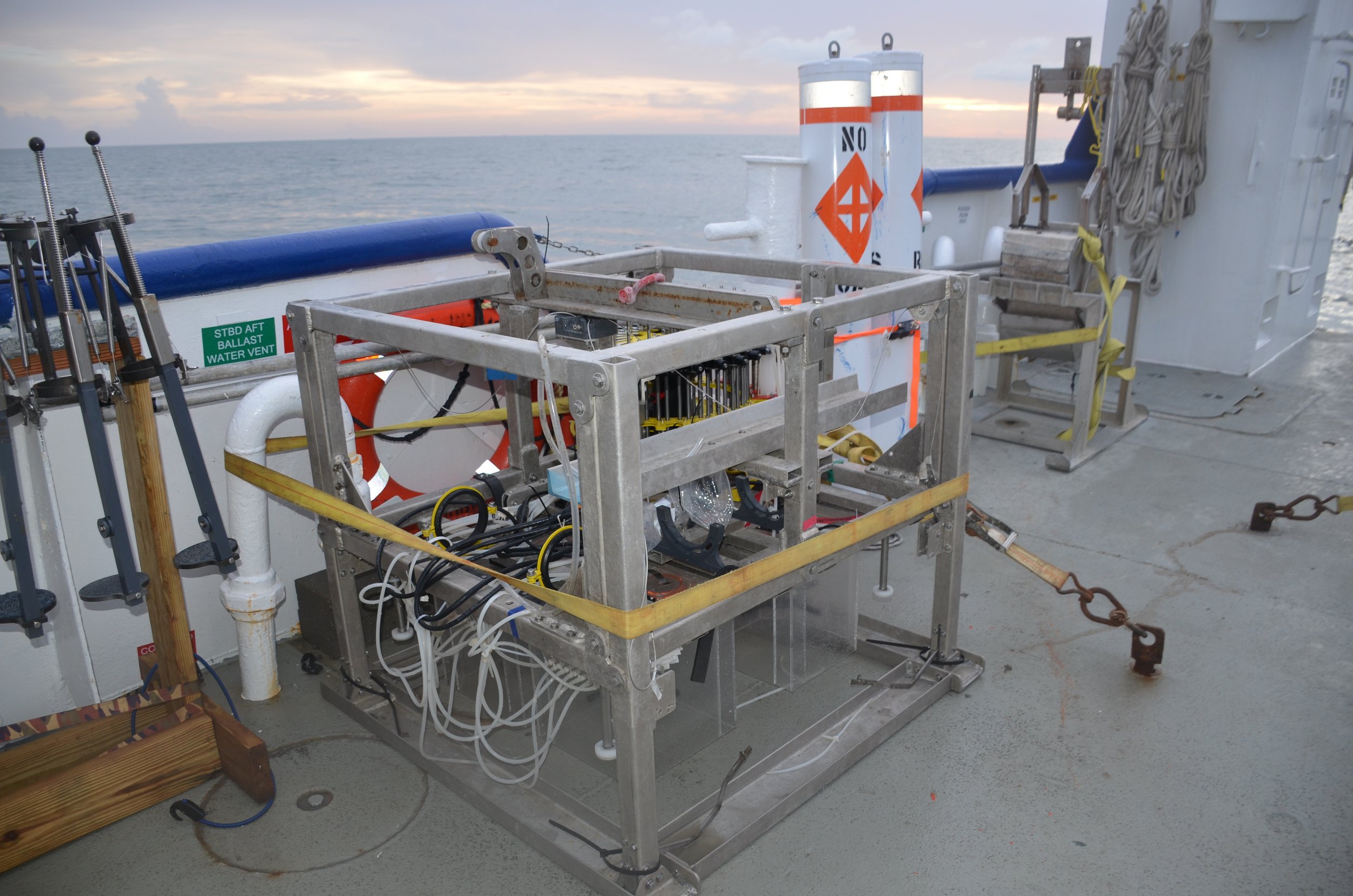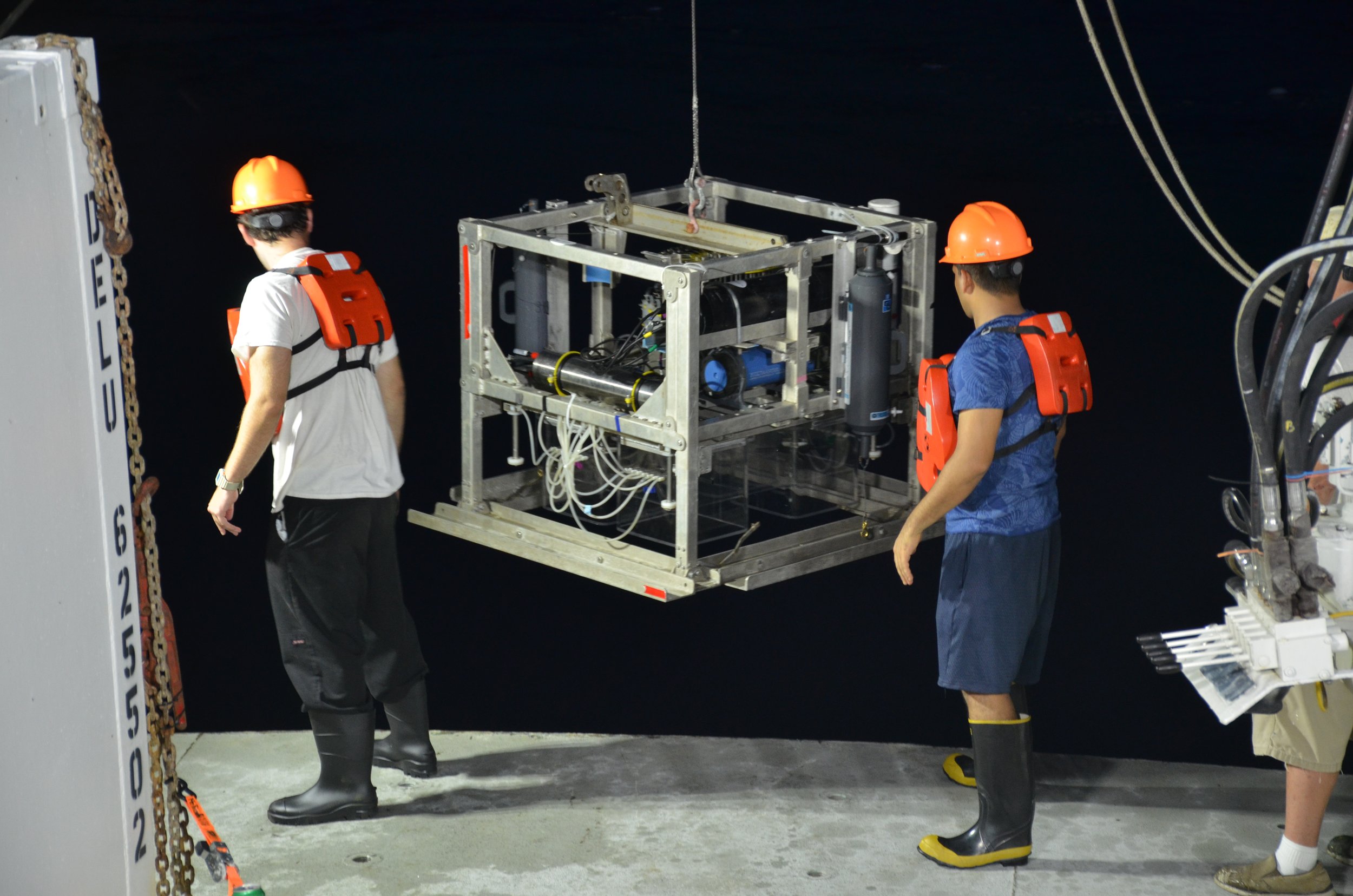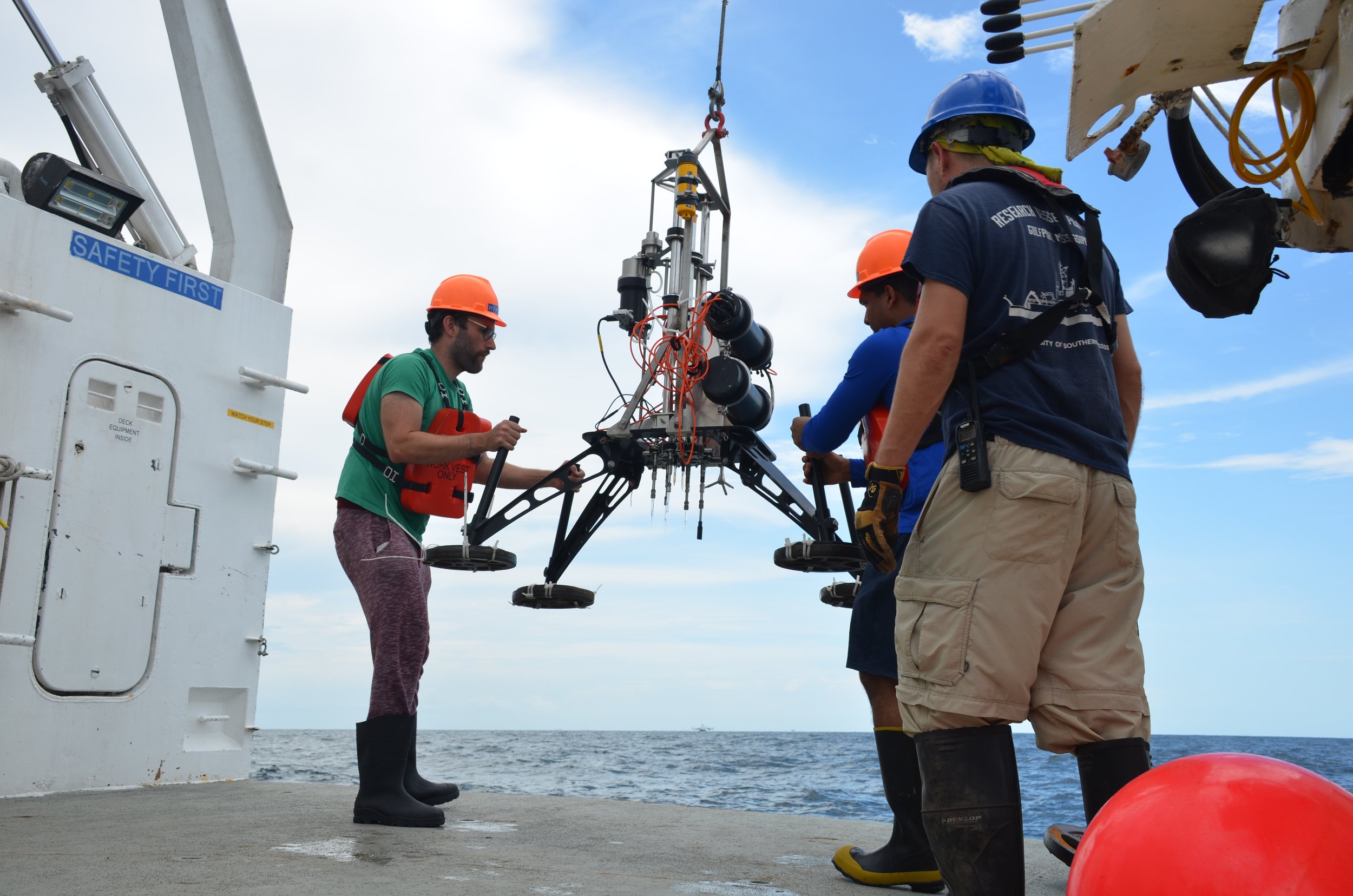CURRENT PROJECT
EXPLORING METHANE RELEASES FROM MARINE SEDIMENTS
Coastal marine sediments are thought to be a substantial source of methane to the overlying water, with the potential for escape through the shallow water column to the atmosphere. Such effluxes are reduced by the oxidation of methane by methanotrophic microorganisms in both aerobic and anaerobic conditions. In marine sediments the primary electron acceptors for methane oxidation are oxygen and sulfate, respectively. Much of the focus on methane oxidation has been on anaerobic methane oxidation due to the great abundance of sulfate in sea- and pore-water and the co-location of the electron acceptor (sulfate) and electron donor (methane). As a result, comparatively little attention has been given to situations wherein anaerobic methane oxidation is overwhelmed and 1) aerobic methane oxidation must account for significant methane oxidation and 2) methane escapes from sediment into the water column.
THE Importance of Rivers
High sedimentation rates can drive methane efflux from sediments, as evidenced by elevated methane concentrations in bottom waters. Observational data suggests that sediments from river influenced shallow shelves emit more methane to the water column than typical continental shelf sediments, with methane escape to the atmosphere promoted by low dissolved oxygen water column concentrations. While several studies have measured water column methane concentrations and associated fluxes to the atmosphere in coastal settings, there are hardly any studies that have carried out a comprehensive analysis of the interaction between sedimentation rate, anaerobic and aerobic methane oxidation in sediments and how they impact the ultimate efflux of methane at the sediment water interface. Our overall objective is to identify the zone where methane is emitted from river influenced coastal sediments, quantify this methane flux, and determine the factors that either limit or enhance sediment methane escape. We will address the following research questions through a combination of in situ flux and chemical gradient analysis, geochemistry, microbial rate analysis, and reactive transport modeling: 1) How much methane escapes the sulfate methane transition zone? 2) How much methane escapes from sediments into the bottom water? 3) What role do environmental parameters play in methane release into the water column?
THE Unique Nature and Societal Relevance of our Work
Understanding chemical fluxes in the marine environment is particularly difficult considering the limited accessibility and analytical challenges that come with it. We will take a multidisciplinary approach that will allow us to better understand the fate of methane produced in marine sediments. The work proposed here will blend benthic flux measurements, geochemistry and rate analysis into a cohesive reactive transport model that will elucidate environmental influences on benthic processes. Our proposed work is (1) motivated by the importance of benthic methane releases for atmospheric methane and its relevance to climate change, and will (2) address knowledge gaps on the magnitude of and controls on sediment-based aerobic and anaerobic methanotrophy. River-influenced marine sediments are also particularly sensitive to anthropogenic forces, global climate change, and sea-level rise, adding further impetus to understanding methane fluxes from sediments in this dynamic setting. The data and model based synthesis will help to determine what areas are most susceptible to release methane.








